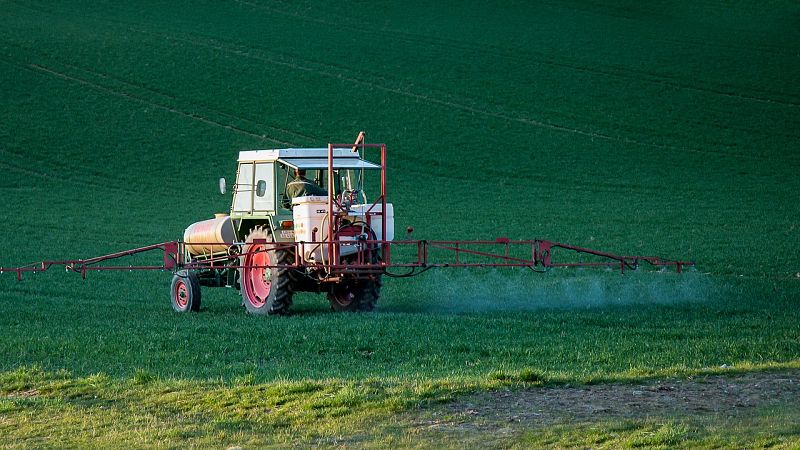Despite insect protection laws, EU has authorised dozens of dangerous pesticides, new report finds

Officials have failed to block a single pesticide under EU laws that were put in place 22 years ago to protect crashing insect populations, according to an independent review.
For over two decades, officials in Brussels have sidestepped the law and authorised dozens of pesticide compounds by following guidelines written with the help of major agrochemical firms, the report by the Pesticide Action Network (PAN) Europe found.
The guidelines give a green light to pesticides that cause staggering losses of insects, spiders, beetles, butterflies, and other arthropod bugs.
In some regions of Europe, insect biomass has declined by an alarming 75 per cent over approximately 25 years, PAN Europe reports.
The guidelines are now being updated with dangerous consequences for yet more species.
Pesticides are responsible for a ‘severe decline’ of insects
Known as “the little things that run the world”, arthropods have diverse ecological roles and are essential to the food supply of almost all land animals and humans.
Scientists say agricultural intensification is the single main reason for insects' “severe decline” and that pesticides are a major cause.
The EU Pesticide Regulation states that pesticide products should have no unacceptable effects on the environment and non-target species, taking into account their impact on biodiversity and ecosystems.
In practice, however, pesticides that are highly toxic to insects and other bugs - and negatively impact biodiversity - continue to be systematically approved in the European Union.
This is possible due to an outdated and biased Guidance Document, which details how the impact of pesticides on 'non-target' arthropods should be assessed in the EU. It has not been revised since it was first adopted in 2002.
This guidance allows for the killing of arthropods with almost no limits, PAN Europe warns.
New European guidelines will put more arthropod species at risk
After years of delay, the European Commission finally granted the European Food Safe-
ty Authority (EFSA) the green light to revise the Guidance Document in June 2024.
However, the new guidelines, which are expected to be published in January 2025, may clash even further with insect protection laws.
Internal documents obtained by PAN Europe against the wishes of the EU food safety body EFSA show that the agency hired chemical industry consultants to draft new pesticide risk assessment methods that favour intensive agriculture.
If adopted, the new methods will not reduce arthropod protections - since the guidelines already provide none.
The real purpose, PAN Europe believes, is for the EFSA to copy the new methods to guidelines for other plant and animal categories as they are revised in the coming years, with amphibian guidelines next in line.
According to PAN Europe, this could “seal the fate of legions of species and shake wider ecosystems to their core”.
EFSA’s new methods will significantly erode Europe’s main pesticide regulation
PAN Europe warns that EFSA consultants want to elevate the status of agricultural production to an ‘ecosystem service’, stripping protections from all arthropods on farmland and reducing the need to change intensive farming practices to suit biodiversity.
Under the new guidelines, all plant-eating bugs will be considered an ecosystem ‘disservice’ and therefore excluded from protection - even though grasshoppers and other such species are the foundation of vast food webs.
They would also ignore a legal requirement to consider the ‘cocktail effect’ of pesticides in combination - which in the real world can make the impacts on bugs hundreds or thousands of times more severe - and to check for long-term impacts of pesticides by limiting the duration of pesticide exposure tests to 48 hours.
These new methods will significantly erode Europe’s main pesticide regulation, PAN Europe warns.
“Chemical lobbyists have somehow persuaded public officials to wave through pesticides that have wiped out vast numbers of bugs, including those essential to crop pollination, natural pest control and crop nutrition,” says PAN Europe’s Executive Director, Dr Martin Dermine.
New pesticide law: ‘There is still time to correct it’ says campaign group
Now, the European Parliament and member governments will have various opportunities to intervene.
The European Court of Justice recently clarified that the environment has priority over the improvement of crop production in the pesticide law, in a case brought by PAN Europe.
In December, the NGO will ask the court to overturn the authorisation of glyphosate - a broad-spectrum herbicide - throughout Europe.
“The good news is that we’ve exposed [the EFSA guidelines], and there is still time to correct it,” says Dermine.
“EFSA wasted large amounts of public money taking us in the wrong direction - and that work must now be thrown out.”
Today

